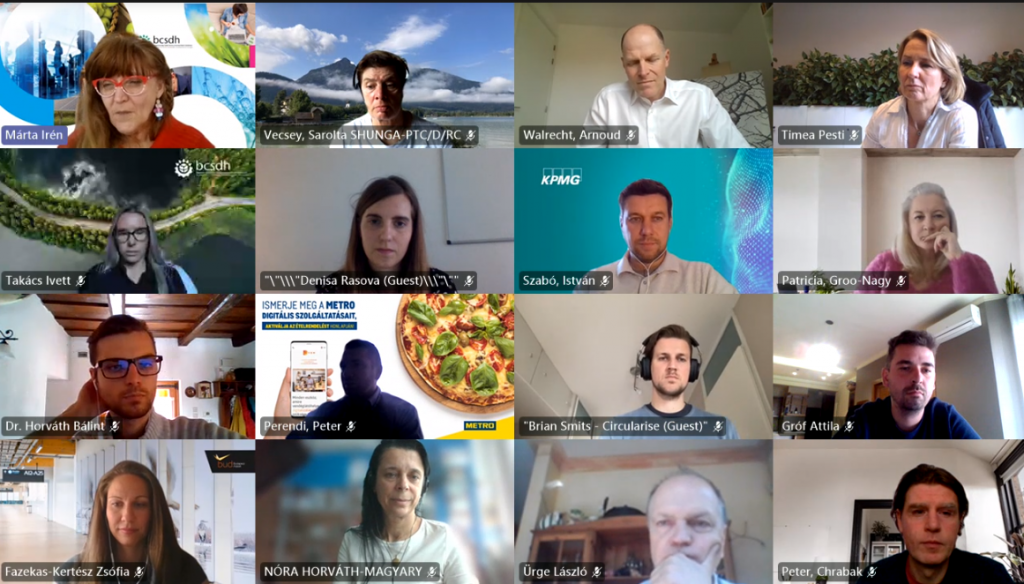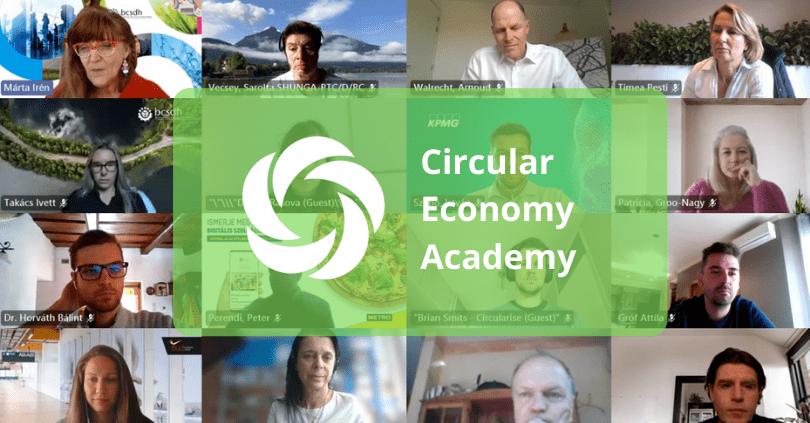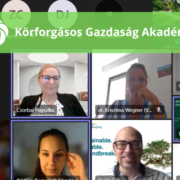“How circular is your company?” – The Circular Economy Academy has been launched
With close to 50 participants, the first day of the Circular Economy Academy kicked-off with the presentation regarding the Circular Transition Indicator (CTI) and the Circularise software, which both ensure the transparency of the circular use of materials throughout the value chain and can be used for the measurement of circularity performance by businesses. The survey on the circular economic potential of Hungary conducted by BCSDH and the Bay Zoltán Research Institute in 2020 confirmed the need for innovation, sharing of business solutions and education. The Academy, modelled on last year’s Circular Economy Webinar series, was launched as a higher-level continuation of education. The three most important topics were identified considering lats year’s webinars, on which the Academy’s program is based. At the first event, an overview of circular measurement systems and practical examples were presented by domestic and foreign experts.

Irén Márta, Managing Director of BCSDH presented the activities of the Circular Economy Platform, as well as international and domestic collaborations, namely the CircularRegions project, the CIRCO project and the Hungarian Circular Economy Strategy. Afterwards, Bálint Horváth, Circular Economy Expert of the Embassy of the Kingdom of the Netherlands, presented the goles, dates and topics of the three webinars of the Academy.
WBCSD and KPMG’s Circular Transition Indicator (CTI) framework and related case studies were introduced to the wider audience by Arnoud Walrecht, Global Lead Circular Economy at KPMG and István Szabó, CEE Head in Sustainability Services, which included the specific metrics, key intervention points and the practical software itself. CTI application is already presently used by companies such as Philips and Microsoft, who used it to report on their level of circularity, and more similar examples are expected to arise.

Denisa Rasova, Manager of the Circular Economy Platform Slovakia presented their work regarding Circular Regions and Circularity measurment tools, namely Circularity Check and Circulytics. The previous one outweighs the latter in its attration of wider audiences, efficiency, and provides more rapid results and has a more specific purpose. While CTI is currently more applicable by larger companies, Circularity Check and Circulytics is a more popular self-assessment tool among smaller businesses.
Mesbah Sabur, founder of Circularise presented their groundbreaking and much needed work, on bringing transparency to another level regarding supply chains, while empowering businesses to take steps towards the transition to a circular economy. Circularise uses a public blockchain system to mimic the physical bounderies of materials regarding production and the supply chain as a whole. All this, while maintaining privacy. For example in collaboration with Porsche, customers have been granted a tool to be thoroughly informed about the sources of the materials used in the products purchased.
Special thanks to our Sponsors:











Leave a Reply
Want to join the discussion?Feel free to contribute!